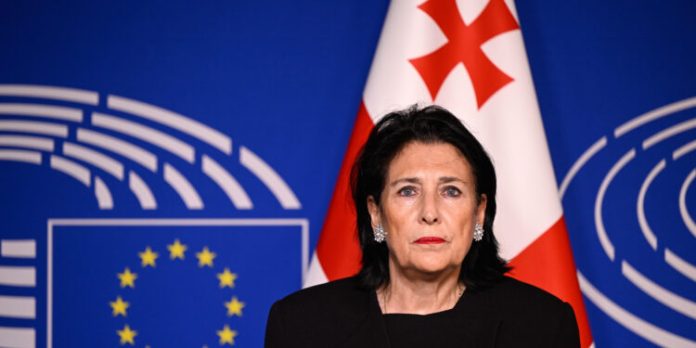On June 3, several opposition parties in Georgia signed the Georgian Charter, previously promulgated by President Salome Zourabichvili.
Overview of the Georgian Charter
The so-called “Georgian Charter” is an initiative aimed at uniting pro-European factions ahead of the parliamentary elections scheduled for October 26 2024. Unveiled by President Salome Zourabichvili during the Independence Day ceremony on May 26, it serves as a strategic roadmap to consolidate opposition against the ruling government and to foster European Union integration.
Political parties and independent MPs of Georgia have signed the #GeorgianCharter , committing to essential reforms aligned with EU recommendations. This is a significant step toward our European future!
???? pic.twitter.com/gsLMqtpTrJ
— Salome Zourabichvili (@Zourabichvili_S) June 3, 2024
Signatories of the Charter
The Georgian Charter was endorsed by a wide range of opposition groups, including For Justice, Greens Party, Girchi-More Freedom, Droa, European Democrats, Strategy Aghmashenebeli, European Georgia, Republican Party, Ana Dolidze For People, Ahali, Lelo for Georgia, Citizens, Freedom-Zviad Gamsakhurdia’s Way, United National Movement, Law and Justice, National-Democratic Party, and State for the People.
Proposition for an Interim Government
President Zourabichvili’s vision, as outlined in the charter, includes the formation of a non-partisan, interim government should the signatories receive a popular mandate in the upcoming elections. This interim government would be tasked with implementing significant reforms aimed at bringing Georgia closer to European standards, culminating in another round of elections in the fall of 2025 to ensure free and fair electoral processes. The President’s plan emphasizes the urgent need for unity among the opposition, reflecting a strong societal demand for cohesive action and a definitive shift in the nation’s foreign policy direction.
Challenges and Concerns
However, notable abstentions included the “For Georgia” party and the “Girchi” party. While For Georgia supports the reforms proposed in the charter, it expressed reservations about establishing a technical government and the feasibility of early elections set for 2025, suggesting these could lead to political and legal impasses. Similarly, Girchi expressed a willingness to engage in discussions but refrained from signing.


